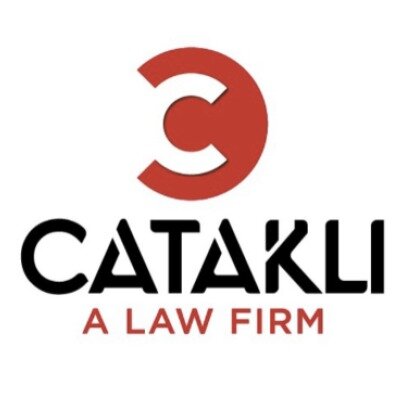Best Real Estate Due Diligence Lawyers in Luxembourg
Share your needs with us, get contacted by law firms.
Free. Takes 2 min.
Free Guide to Hiring a Real Estate Lawyer
Or refine your search by selecting a city:
List of the best lawyers in Luxembourg
About Real Estate Due Diligence Law in Luxembourg
Real Estate Due Diligence in Luxembourg involves comprehensively assessing property before finalizing any transaction, such as purchasing or leasing real estate. Given Luxembourg's intricate property market and its pivotal role in the European Union, due diligence helps mitigate risks and ensures informed decision-making. Typically, this process involves examining legal, financial, and technical aspects to verify a property's validity and potential liabilities. The small yet affluent nation of Luxembourg follows stringent regulations, making it crucial for involved parties to perform thorough checks and maintain compliance with local laws and norms.
Why You May Need a Lawyer
Engaging a lawyer for Real Estate Due Diligence in Luxembourg is advisable for several reasons. Often, individuals and businesses encounter complexities in areas such as:
- Interpreting complex property rights and legal terms.
- Identifying potential legal issues related to zoning, environmental compliance, or historical preservation.
- Conducting a detailed review of contracts, titles, and previous ownership records.
- Navigating Luxembourg's regulatory landscape and acquisition procedures.
- Ensuring proper valuation and in-depth appraisals to avoid overpayment.
- Negotiating terms and conditions to safeguard your investment interests.
- Handling cross-border transactions and the accompanying legal implications.
Local Laws Overview
Understanding Luxembourg's local laws is imperative in real estate dealings. The laws cover numerous areas, including:
- Urban Planning: Defined by communal land-use plans (PAG) which establish zoning regulations affecting property development.
- Environmental Protection: Compliance with environmental codes to prevent unforeseen liabilities regarding land use.
- Taxation: Includes property tax regulations and implications for different types of ownership.
- Property Registration: Ensuring accurate and legal registration of property in the official land registry.
- Lease Arrangements: Governed by laws that outline tenant rights and obligations, crucial for both landlords and tenants.
Frequently Asked Questions
What is the purpose of Real Estate Due Diligence?
Due diligence aims to verify the legality, financial integrity, and physical condition of a property before completing a transaction, reducing risks and revealing potential issues.
What documents are typically reviewed during due diligence?
Key documents include title deeds, zoning certificates, building permits, tax records, lease agreements, and environmental assessments.
How long does the due diligence process take?
The timeline varies based on property complexity but typically ranges from a few weeks to a few months.
Can I conduct due diligence without a lawyer?
While possible, it is not recommended due to the intricate nature of legal, financial, and technical inspections involved.
What are the consequences of skipping due diligence?
Skipping due diligence can lead to undiscovered legal issues, tax liabilities, or structural problems, elevating financial risk.
What are zoning laws, and why are they important?
Zoning laws define land use and development parameters. Understanding them ensures that the intended use aligns with legal restrictions.
Are there specific environmental regulations affecting real estate?
Yes, properties must comply with environmental standards to prevent contamination liabilities, protect ecosystems, and meet sustainability goals.
How do Luxembourg's tenancy laws impact property transactions?
Laws stipulate tenant rights, lease terms, and protections, influencing rental real estate due diligence procedures.
What role do notaries play in Luxembourg's real estate transactions?
Notaries authenticate property transactions, ensure deed accuracy, and that transfers comply with legal statutes.
Can foreign investors acquire real estate in Luxembourg?
Yes, foreign investors can purchase property but must comply with Luxembourg's regulatory requirements and due diligence standards.
Additional Resources
For further assistance, consider the following resources:
- Ministry of Housing (Ministère du Logement): Offers insights on housing regulations.
- Luxembourg Land Registry and Topography Administration (Administration du Cadastre et de la Topographie): Guides on property registration.
- Chamber of Commerce Luxembourg: Provides business-related legal advice, including real estate investment.
- Local legal firms specializing in real estate law.
Next Steps
If you require legal help for Real Estate Due Diligence in Luxembourg, consider these steps:
- Research and engage a reputable lawyer experienced in Luxembourg's real estate laws.
- Compile all necessary documentation concerning your property or transaction.
- Discuss your specific concerns and objectives with your legal representative.
- Have your lawyer conduct a thorough due diligence assessment.
- Review all findings and recommendations with your lawyer and decide on any necessary actions before proceeding with the transaction.
Lawzana helps you find the best lawyers and law firms in Luxembourg through a curated and pre-screened list of qualified legal professionals. Our platform offers rankings and detailed profiles of attorneys and law firms, allowing you to compare based on practice areas, including Real Estate Due Diligence, experience, and client feedback.
Each profile includes a description of the firm's areas of practice, client reviews, team members and partners, year of establishment, spoken languages, office locations, contact information, social media presence, and any published articles or resources. Most firms on our platform speak English and are experienced in both local and international legal matters.
Get a quote from top-rated law firms in Luxembourg — quickly, securely, and without unnecessary hassle.
Disclaimer:
The information provided on this page is for general informational purposes only and does not constitute legal advice. While we strive to ensure the accuracy and relevance of the content, legal information may change over time, and interpretations of the law can vary. You should always consult with a qualified legal professional for advice specific to your situation.
We disclaim all liability for actions taken or not taken based on the content of this page. If you believe any information is incorrect or outdated, please contact us, and we will review and update it where appropriate.
Browse real estate due diligence law firms by city in Luxembourg
Refine your search by selecting a city.














